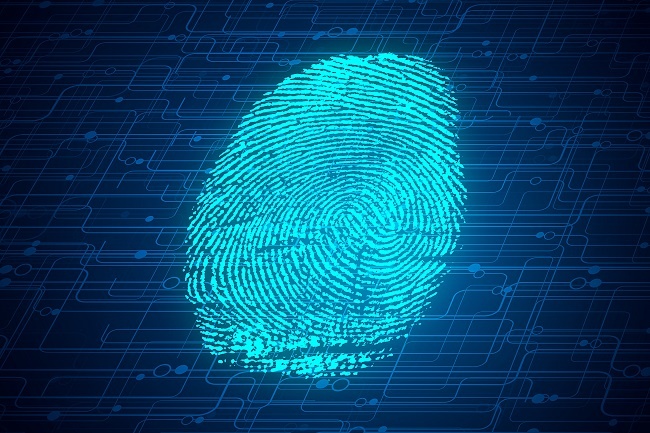CANSFORD LABS
Cansford says: World’s first fingerprint-based drug use test
on Jun 8, 2018

If you want to find out drug levels in someone’s system, you have a few different options. You can analyse a sample of their urine, blood, sweat, breath or, of course, hair. Each will give you a picture of when the person used drugs, and the amount.
Not all tests give you the same information. Some tests, such as blood or saliva tests, give a small window of insight into a user’s drug use – hours and days. Others, like hair testing can analyse drug use over a longer period – weeks and months.
With so many different options for ascertaining information, it’s not often a new test comes to market. But earlier this year, the firm Intelligent Fingerprinting launched a fingerprint-based drug test. The test, the company says “works by analysing sweat from a fingerprint to determine if someone has recently used cocaine, opiates, amphetamines or cannabis.
- You may like: Cansford says: Pioneering family court expands in London
“Should an individual’s screening test provide a positive result – in contravention of a drug misuse policy, for example – testers can use the new Fingerprint Collection Kit to collect samples for a subsequent laboratory-based confirmation test.”
With recent research from the University of Surrey showing that one in ten drug-free people are found to have cocaine or heroin residues on their fingertips, how does this new test hold up against existing methods? What are the benefits to the lab and to the client, and, does it work?
Cansford says:
While fingerprint testing might sound new and exciting, there appears to be little difference between this and other point of care testing methods like blood, saliva or urine testing.
Testers will still have to buy an instrument, they’ll have to conduct the tests themselves and then the tests will have to be sent off to the LGC Group for confirmation. The fingerprinting system appears to function in a similar way to drug tests like DrugWipe, so ultimately it’s difficult to judge how useful or different it will be.
Intelligent Fingerprinting has much the same benefits...
And suffers the same problems as those other tests, too. On the plus side, you can get an immediate positive or negative decision on the spot. On the flip side, as each test has to be sent to LGC, the results are clearly ‘presumed positives’ i.e. the test requires additional external laboratory testing to confirm the positive result is correct. For courts and in workplace testing, this can mean a costly waiting period while waiting for confirmation.
In fact, this method could encounter problems over and above other testing practices as it uses such little sample material. This, again, could cause delays and issues when waiting for the sample to be confirmed.
Finally, the window of detection is limited
Fingerprint testing may well be a great option to have for analysing drug use over a short-term period, say one to two days, but the hair test remains the better option when determining drug profiles over a longer period of time.
The only place we can see benefits over other testing methods might be combining the individual’s fingerprint with the test so we have clear, undeniable visibility when it comes to chain of custody. You would hope, however, that the laboratory’s collection procedures are rigorous enough that chain of custody isn’t in question.
So, a potentially beneficial testing method for detecting drug and alcohol use over a small period but one with similar issues as other methods of POC testing. In fact, with the increased danger of external contamination - your hands are more likely to be contaminated than the inside of your mouth for instance - it’s tough to see why you’d select this method above oral fluid testing in the first place.

John Wicks
John Wicks is one of the UK's leading experts in drug testing and has been for over 25 years. He is CEO and co-founder of Cansford Laboratories, a drug and alcohol testing laboratory based in South Wales. John is one of the ‘original expert minds’ who alongside co-founder Dr Lolita Tsanaclis, is responsible for bringing hair testing to the UK.

